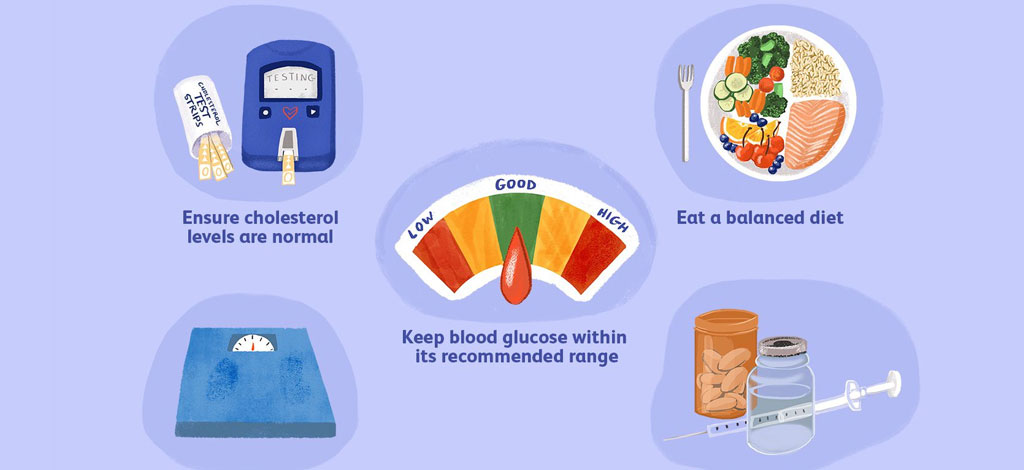Prevention of Diabetic Complications
Preventing complications associated with diabetes is crucial for maintaining overall health and well-being. Diabetes can lead to various complications affecting the heart, blood vessels, eyes, kidneys, and nerves. Effective diabetes management and lifestyle choices play a significant role in preventing these complications. Here are key strategies for preventing diabetic complications:
- Regular Monitoring: Regularly monitor blood glucose levels as advised by healthcare professionals. Keep levels within the target range, which may involve medication, insulin, and lifestyle adjustments.
- A1c Testing: The A1c test provides a measure of average blood glucose levels over the past 2-3 months. Aim for the target A1c recommended by your healthcare team.
Maintain Optimal Blood Glucose Levels:
- High blood pressure (hypertension) can exacerbate diabetes-related complications. Maintain blood pressure within the target range through lifestyle changes, medications, and regular monitoring.
Control Blood Pressure:
- Control cholesterol levels to reduce the risk of cardiovascular complications. This involves a healthy diet, regular exercise, and, if necessary, medications.
Manage Cholesterol Levels:
- Balanced Diet: Follow a balanced and nutritious diet, emphasizing fruits, vegetables, whole grains, lean proteins, and healthy fats. Limit intake of processed foods, sugars, and saturated fats.
- Regular Exercise: Engage in regular physical activity, including aerobic exercises and strength training. Exercise helps control blood glucose, improve cardiovascular health, and maintain a healthy weight.
- Quit Smoking: Smoking increases the risk of cardiovascular complications. Quitting smoking has immediate and long-term health benefits.
- Limit Alcohol Intake: Moderation in alcohol consumption is advised, as excessive alcohol can affect blood sugar levels and contribute to complications.
Adopt a Healthy Lifestyle:
- Manage blood pressure and maintain blood glucose levels to protect kidney function. Regular monitoring of kidney function through blood and urine tests is important.
Kidney Health:
- Attend regular check-ups with healthcare providers to monitor overall health and address any emerging issues promptly.

